Overview
Many people compare the importance of API to “the planet will stop spinning if the concept of API is no longer.” So What is the API, and How important is it? You seem eager to find out exactly what the API is. Let’s get started!
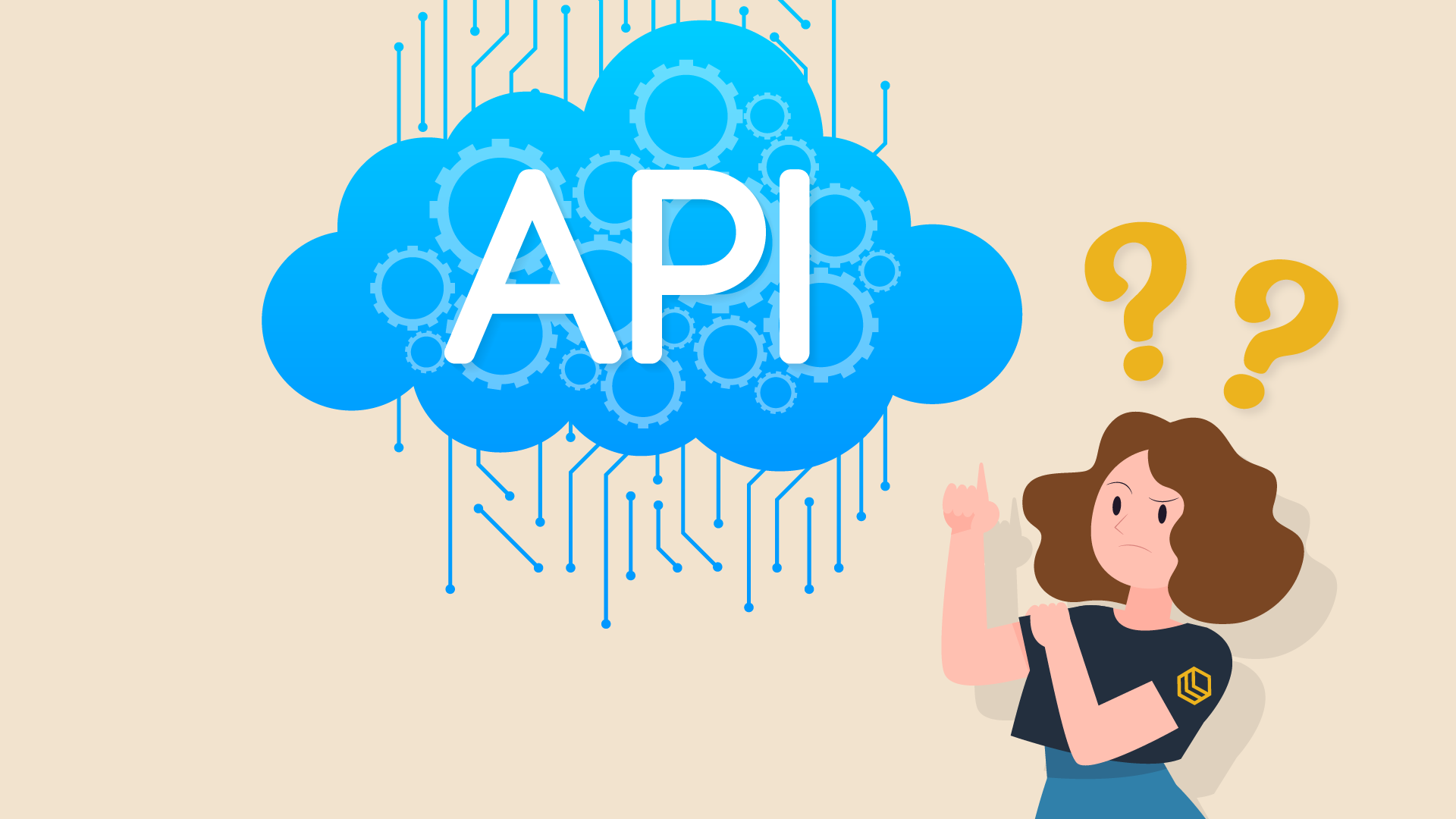
What is an API?
API is very simple, it appears under your nose
Consider the following case so that you can better visualize the API:
Imagine you’re attending a wedding ceremony in a bounded space. The space where a wedding is taking place is called application programming. There are five aisles in the space with different functionalities, including:
– The first aisle is for welcoming guests to the wedding area.
– The second one is for leaving the wedding party.
– The third one is for employees (including MCs, management staff, and service staff entering and leaving the kitchen area to arrange food, etc.)
– The last two aisles connect with other wedding areas.
Each aisle has a specific interface and when used to interact with the wedding area (application) to run the wedding ceremony.

Splitting API term
You have heard the concept of API simply, so now let’s come to the exact concept of a technical API.
API stands for Application Programming Interface. Is this too ‘programmer’ language for you?
That’s fine. I will explain the concept step by step. For your understanding, it would be better to start with two different factors: Interface and Application Programming.
What is an Interface?
According to the Cambridge dictionary, an Interface is a point where two systems, subjects, organizations, etc meet and interact. We can find many examples of interfaces by following this definition such as:
The power Socket is an Interface
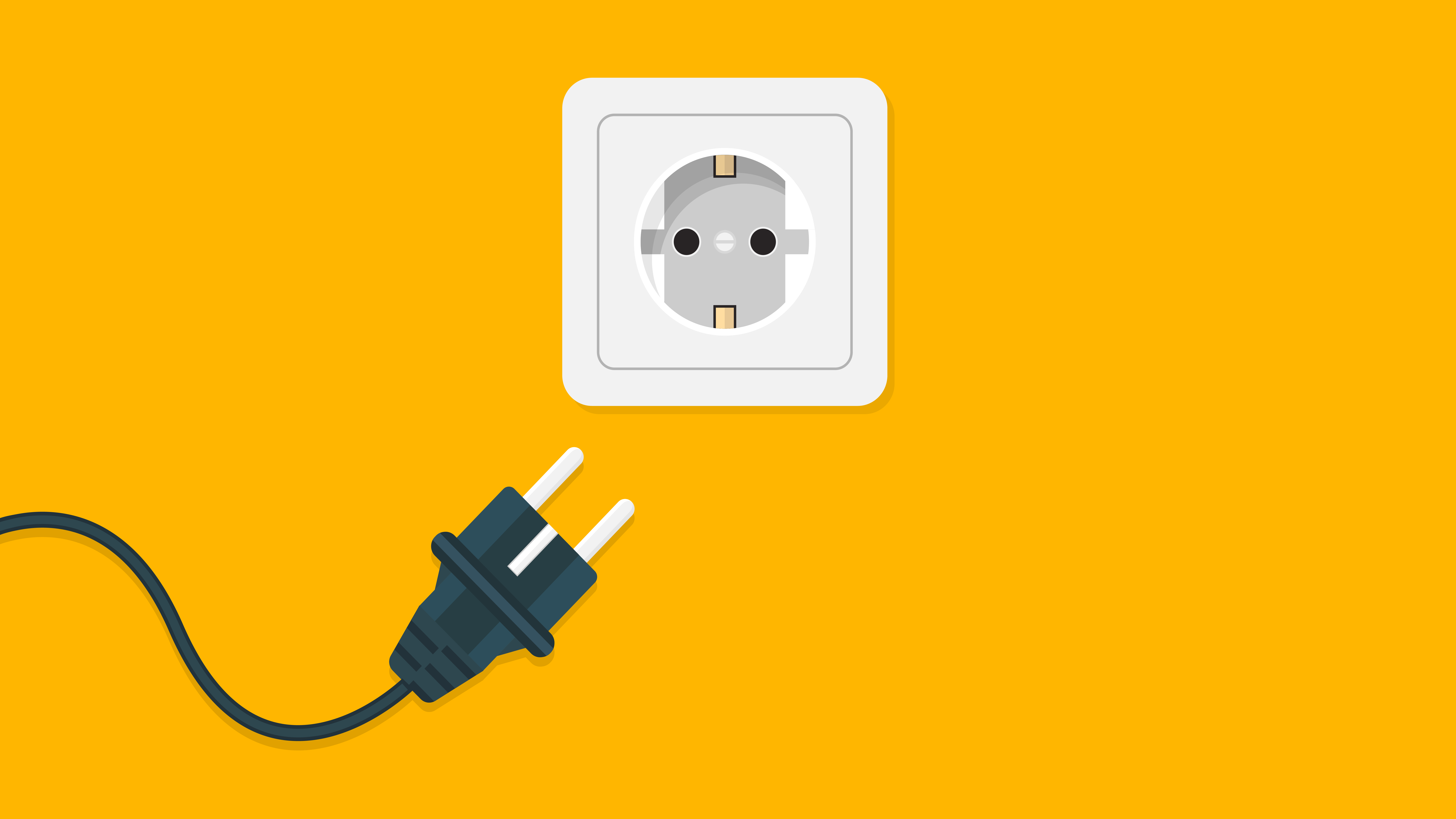
The electrical devices interact with the power socket to receive the electric current required for their operation. In this case, the power socket acts as an interface.
The faucet is an Interface

People interact with the faucet to receive the water coming out of the faucet. In this case, the faucet acts as an interface.
Your Door is an Interface

Humans interact with the door to enter the house. In this circumstance, the door acts as an interface.
The smart Phone Touch screen is an Interface
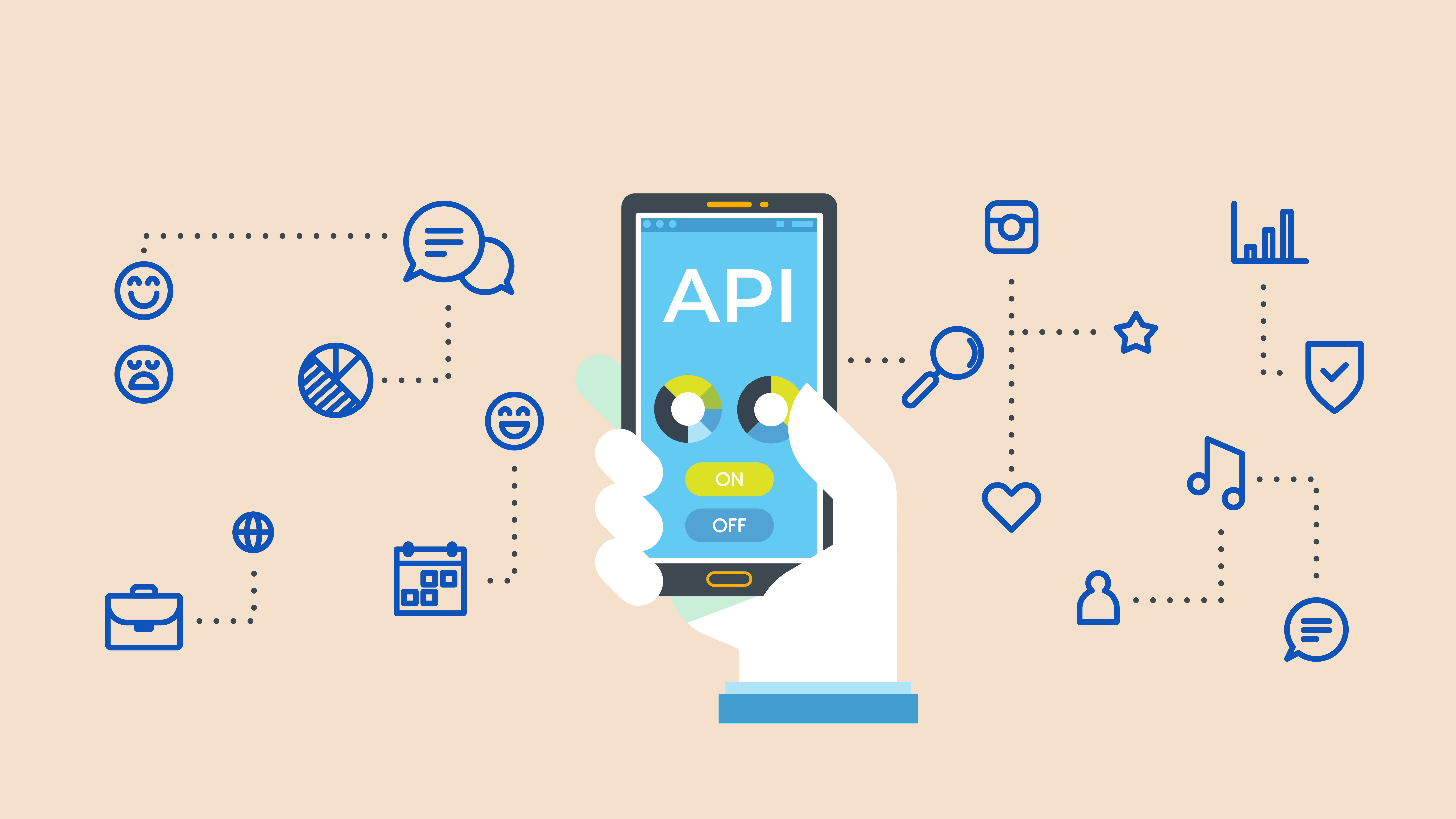
People interact with the phone screen to use the phone for many purposes, such as entertainment, communication, learning, etc. In this situation, the phone screen acts as an interface.
And a lot of Hardware interfaces on your Laptop
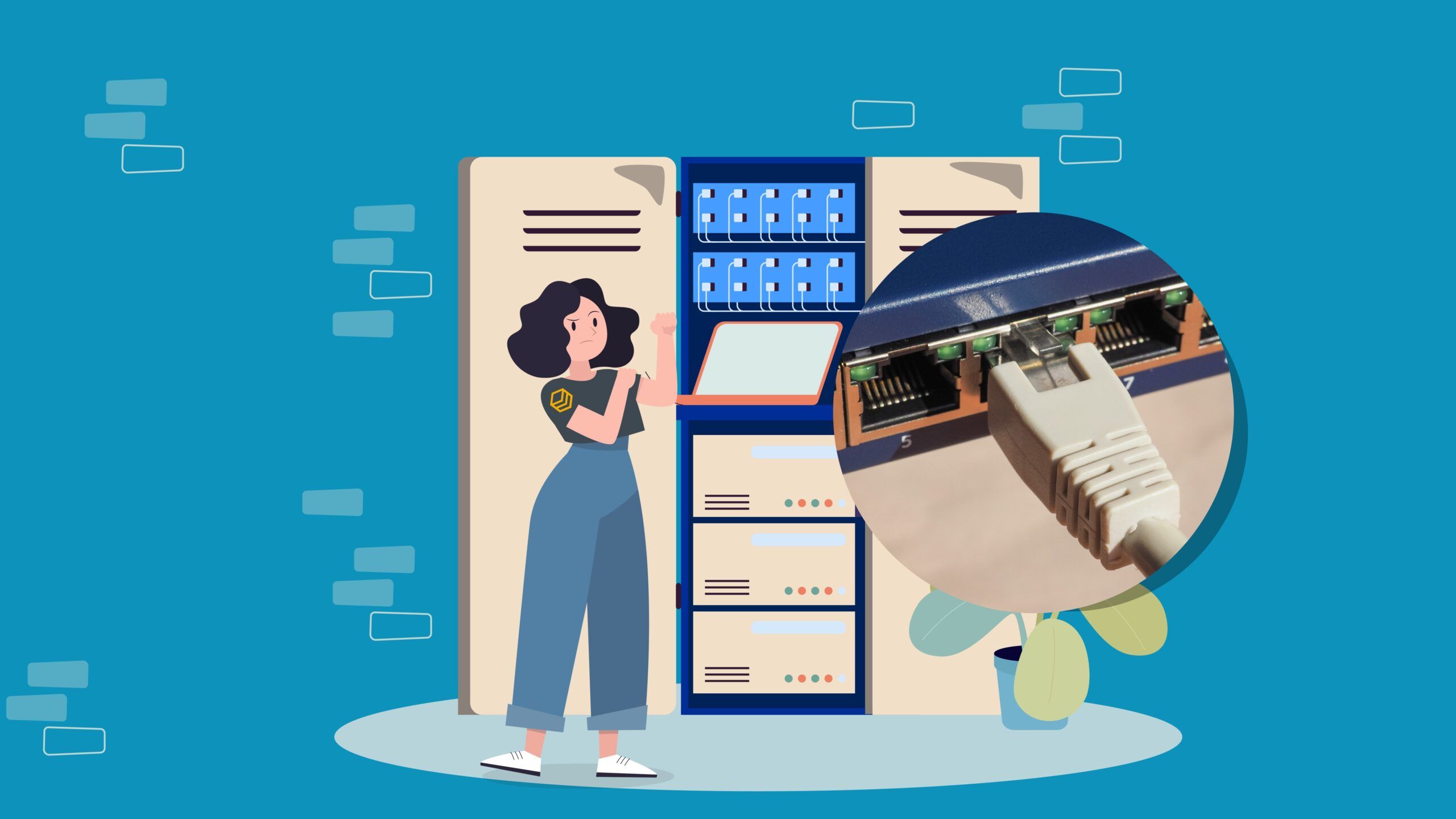
The mechanical, electrical, and logical signals at the interface, as well as the protocol for their arrangement, describe hardware interfaces (sometimes called signaling).
Hardware interfaces exist in many components. A laptop computer’s interface, for example, includes the following:
- Ethernet network socket (center)
- VGA port
- a display port socket
- a USB 2.0 socket
As you know, Interfaces are everywhere and are very close to us daily. Hopefully, you can imagine the Interface after the above examples. To better understand the API, let’s clarify Application Programming.
What is an application program?
According to Techopedia, an application program is a comprehensive, self-contained program that performs a particular function directly for the user. Among many others, application programs include:
- Customer Relationship Management (CRM)
- Web browsers (Firefox, Chrome, Microsoft Edge …)
- Games
- Google Docs, Microsoft Excel …
- Enterprise Resource Planning (ERP)
- Accounting software
- Graphics software
- Media players
- Database management
Let’s go back to the electrical outlet example to understand application programming better.
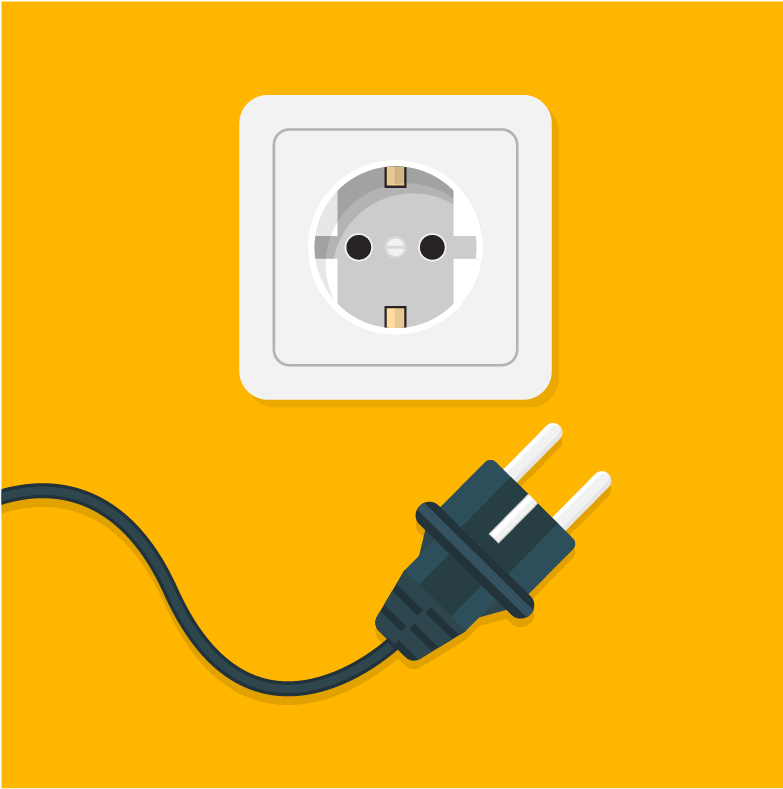
As mentioned, the Interface in this example is Power Socket. So, what occurs behind the scenes when we put the device into an outlet and turn it on?
The way current works in the power system so that when we plug the device into the Power Socket to receive electricity is called Application Programming.
Thus, we can summarize that an API is an interface to interact with an Application for Programming.
API of an Application is a set of programming codes that allows other 3rd party systems to interact with that Application. It specifies the types of requests that can be made, how they are made, and how data can be exchanged with this kind of application.
Perhaps we talked too much about theory. To have a deeper understanding, we will now look at the Google Maps API to know how the application we use every day actually works.
The example of Google Map API
API is ubiquitous and widely used by people, but perhaps nobody is aware of its presence and features. Google Maps, for example, this application uses API to help us locate and search for exact locations.
Search address and route by using API:
How frequently do you use Google Maps to find a location since you do not know how to get there? Try searching for Beehexa, and you’ll find us.
Using Google Maps API to render Google Maps
See the Pen
Show map on web – Google by niafamhexa (@niafamhexa)
on CodePen.
You can view Beehexa’s Google Maps data directly by clicking here: Demo on Codepen.
We have a div#map on the page. Without the GoogleMap API, we can not see anything.

Using Geocoding API to show Beehexa location
When looking for Beehexa’s location on Google Maps, Google Maps API will get data from Google and return the result (Beehexa’s location) on this app.
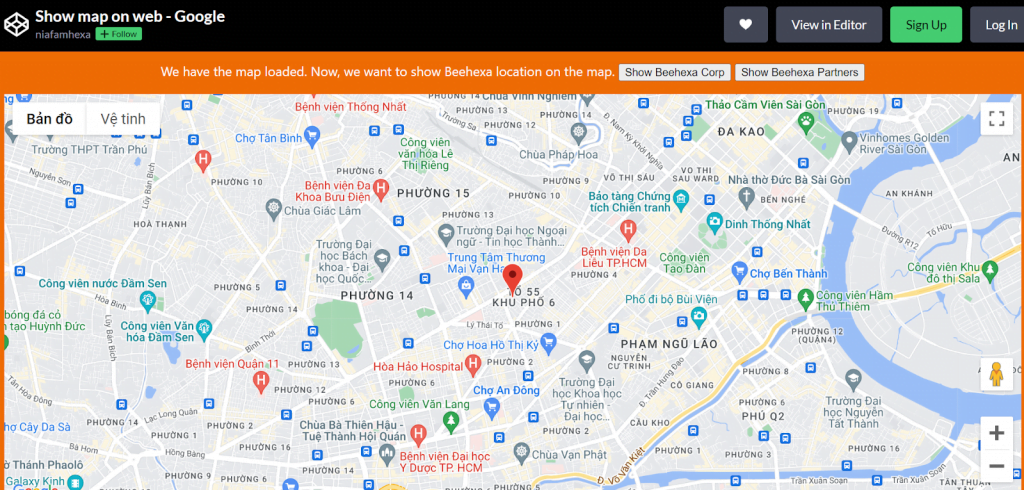
Using the Google Maps API, we can also locate the coordinates of Beehexa’s global partners on a map.
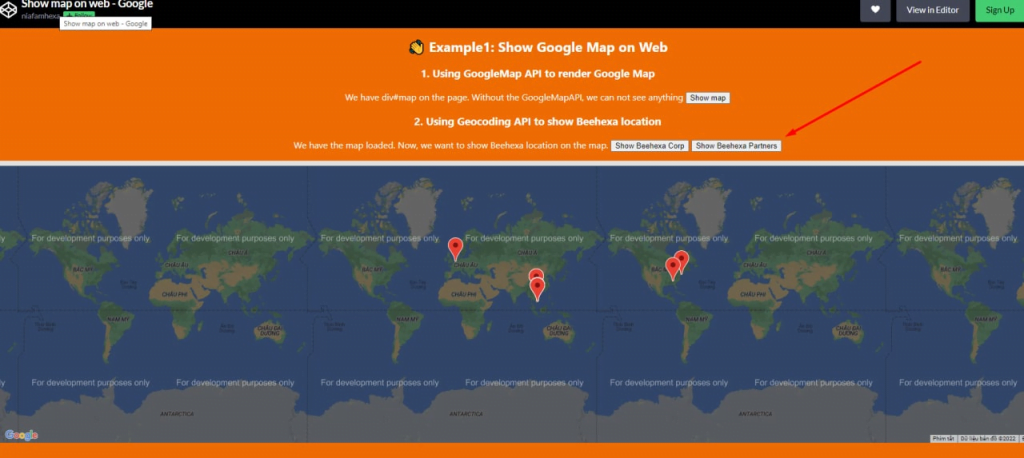
The benefits of APIs

API has become a new business strategy for companies in today’s technology era. So what is the real reason? What makes APIs of human interest these days? Let’s take a look at the significant benefits that it brings:
Cost-saving
APIs will significantly reduce time and effort as businesses do not need to start from scratch when creating applications from elsewhere. Additionally, using APIs helps focused developers refine their apps’ unique capabilities faster, saving a lot of time and money.
Increase productivity
We can take advantage of API’s powerful modern technologies and integrate them into our applications to save time and increase business productivity. Specifically, APIs provide a powerful mechanism for faster development, enabling developers to deploy existing functionality without starting from scratch.
Improved connection
The primary function of the API is to connect and allow applications and systems to communicate with each other. So the API acts as a binder when software or applications disconnect during entry into new environments. As connectivity improves, operations will be streamlined, helping businesses deliver the desired functionality and not be congested.
Improve customer experience
In today’s digital age, when the user experience is always the first, businesses have leveraged the ability of APIs to create new and effective ways to interact with customers. Besides, using API will help businesses have better control over customer experience; customers will enjoy products and services in a personalized way.
Promote marketing activities
Using APIs makes it possible to expand our market reach and speed up our reach. APIs enhance connectivity and collaboration, so they can reduce the time it takes to create high-quality products or market new products and services.
Final Words
According to Forbes, API is eating the world when the technology companies leading the survey have 96% of developers planning to use APIs more or the same in 2021 than in 2020. Besides, financial services developers (94%), telecommunications (89%), and healthcare (86%) also indicated plans to increase or maintain their API usage.
In conclusion, APIs play an important role as a catalyst for the growth of most businesses, opening up many opportunities to scale and drive innovation. The benefits of APIs are huge; they will come into play when we take advantage of and value it. You could see more detail in this Video below:
Whether businesses focus on internal operations, partner integration, or public access, APIs provide a host of significant benefits to businesses and their employees. Therefore, every company should be concerned about API.
How can more than two apps communicate and share data? This required communication between their APIs, resulting in the concept of API Integration. In the following article, we will develop this topic.